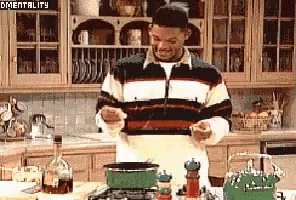How Augmented Reality Will Make Cooking Fun and Engaging for Young People
Why don't young people cook? I mean, it does seem really weird to me that people, especially the younger generation don't know how to feed themselves, other than ording an Uber Eats

Why don't young people cook?
I mean, it does seem really weird to me that people, especially the younger generation don't know how to feed themselves, other than ording an Uber Eats.
When my parents were less mobile, I used to go round and cook us all supper, so many conversations were started over the dinner table, or when I was in the kitchen cooking.
I started when I was 9, this is when I started going fishing, I wanted decent food to take with me, so I did it myself. The lake was only a short walk, so I was up an out the door at 4am in the summer.
Today's younglings (😃) often lack opportunities to learn cooking skills, resulting in a generation growing up disconnected from food preparation.
But immersive technologies like augmented reality (AR) and mixed reality (MR) could change that by turning cooking into an interactive game.
With AR/MR, nutrition and culinary education can happen seamlessly at home, without the pesky parents sticking thier oar in.

AR/MR cooking games can make following recipes entertaining
Imagine an AR cooking game where virtual ingredients pop up over the kitchen counter as progress markers while kids complete recipes. Kids could unlock achievements for mastering skills and methods.
You could create anchored info boxes that follow the ingredients around the pan, and an in the room avatar helper. This gamification makes following recipes engaging rather than passive or even forced.
Immersive cooking allows safe experimentation for young chefs
AR/MR also creates a safe space for young people to experiment. Budding chefs can get creative replicating meals from their favorite movies or games through AR. MR simulations can let kids practice using dangerous appliances before stepping foot in the real kitchen. This promotes familiarity and confidence.
Beyond just cooking skills, AR/MR can promote better eating habits. Kids could view 3D visualizations of nutritional concepts or journey through a virtual digestive system. Immersive grocery store simulations can teach about produce while meal planning apps help visualize balanced diets via AR.

AR/MR cooking opens a world of possibility for connecting kids to food
The potential for AR and MR to revolutionize how young people learn about cooking and nutrition is vast. Once the novelty of video games and apps fades, active and visual learning experiences enabled by immersive tech could be the key to equipping the next generation with vital culinary life skills. For kids, the future of food will be interactive.
Just one last thought, who's going to clean up this mess?







